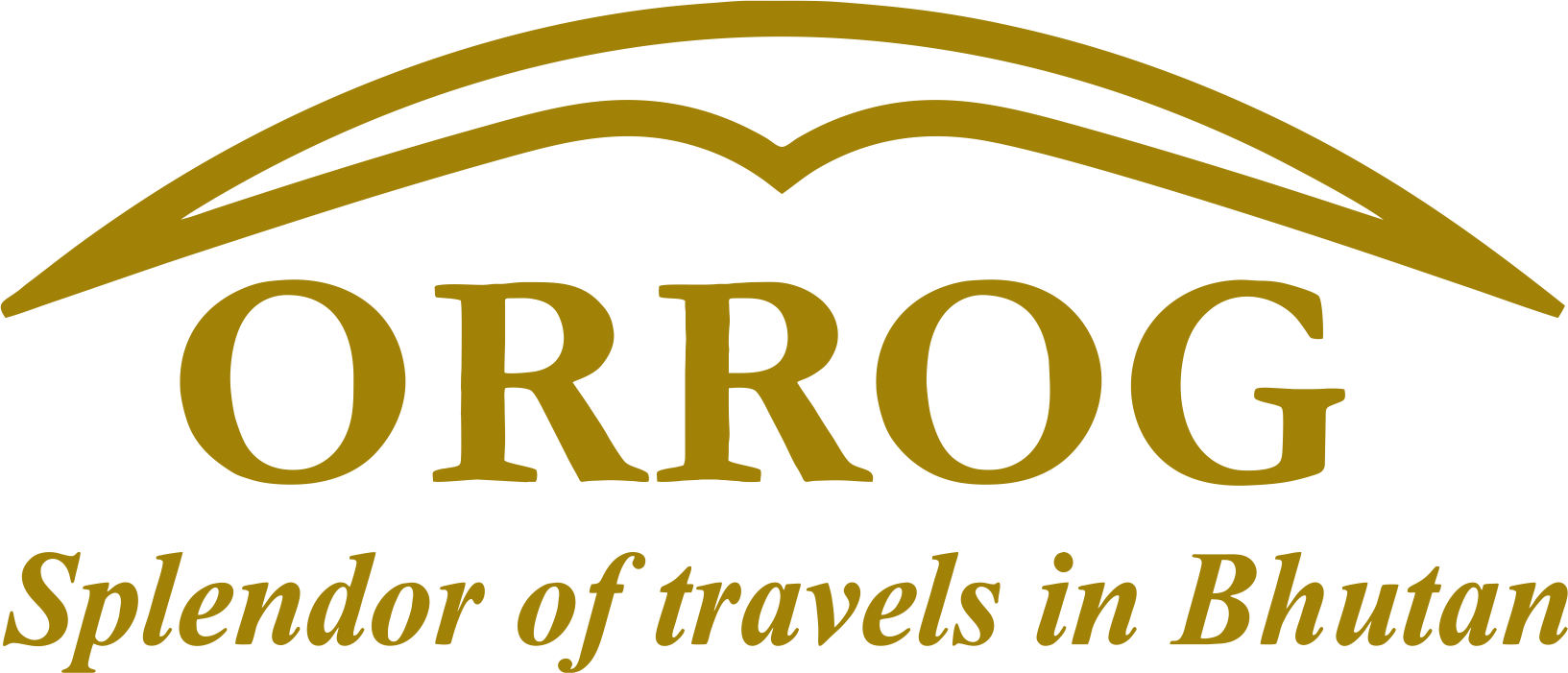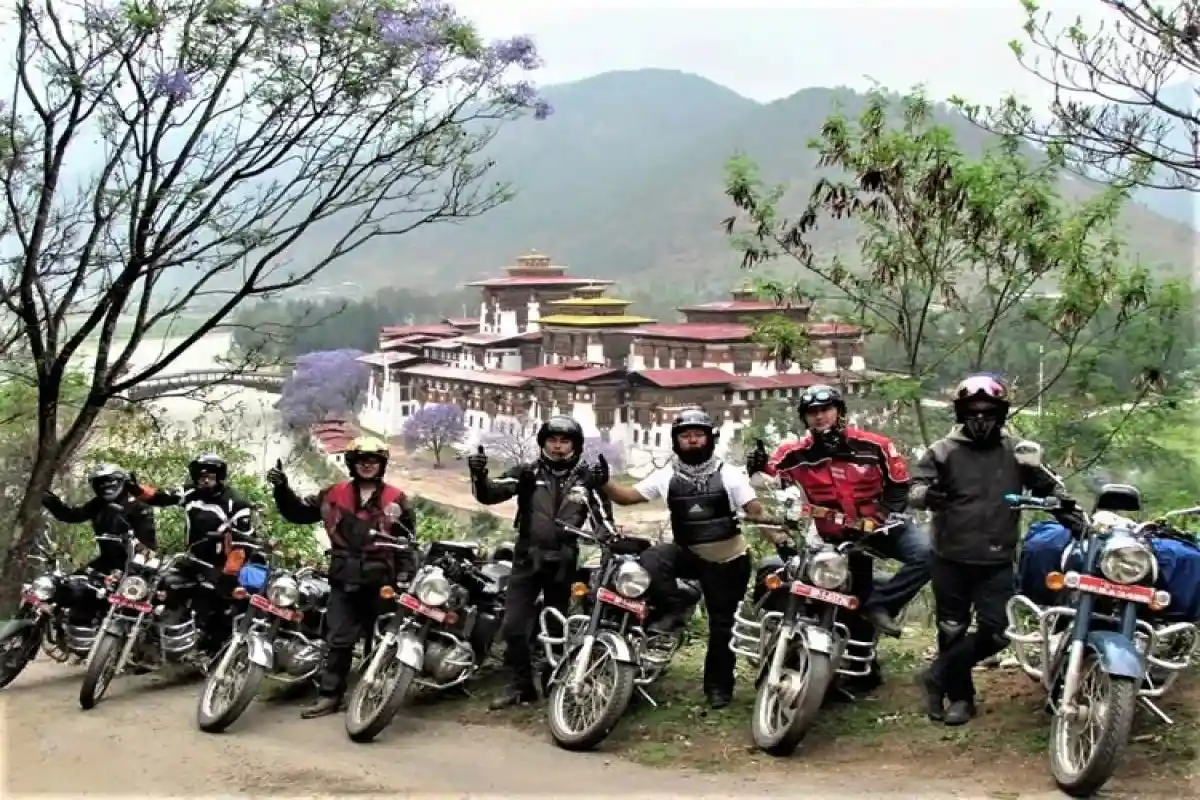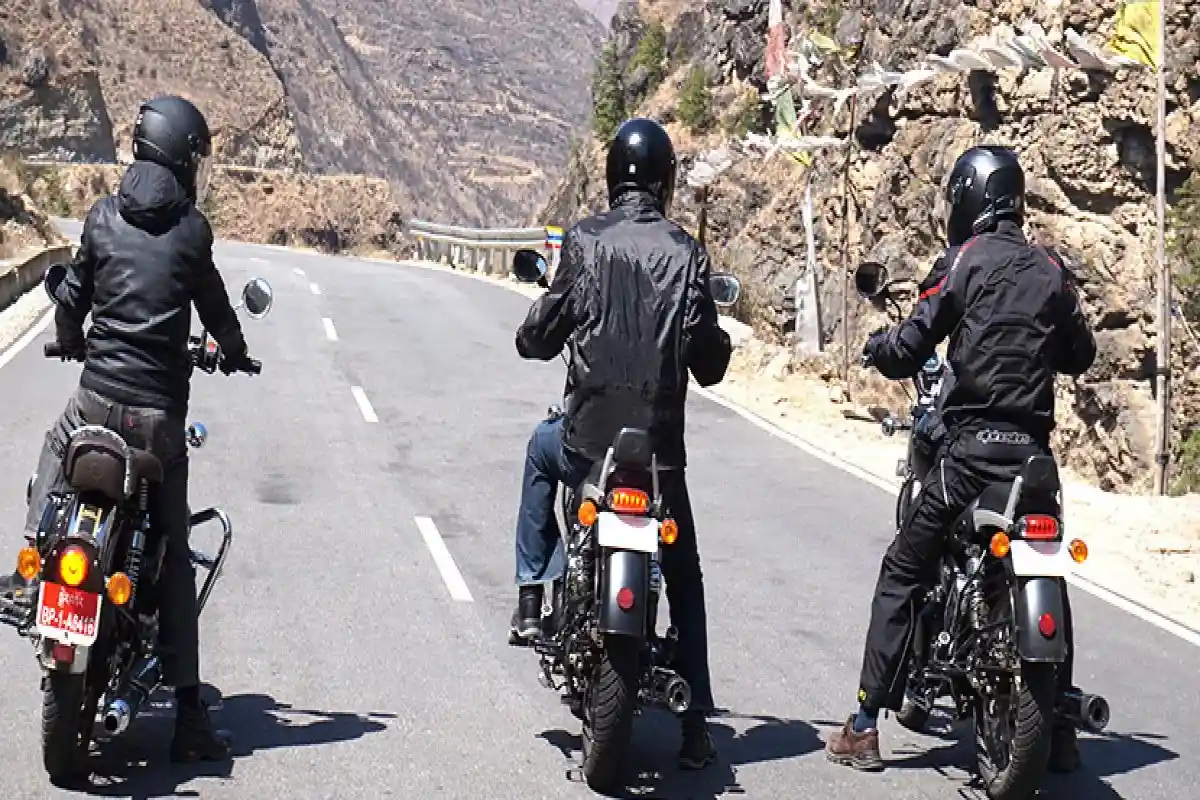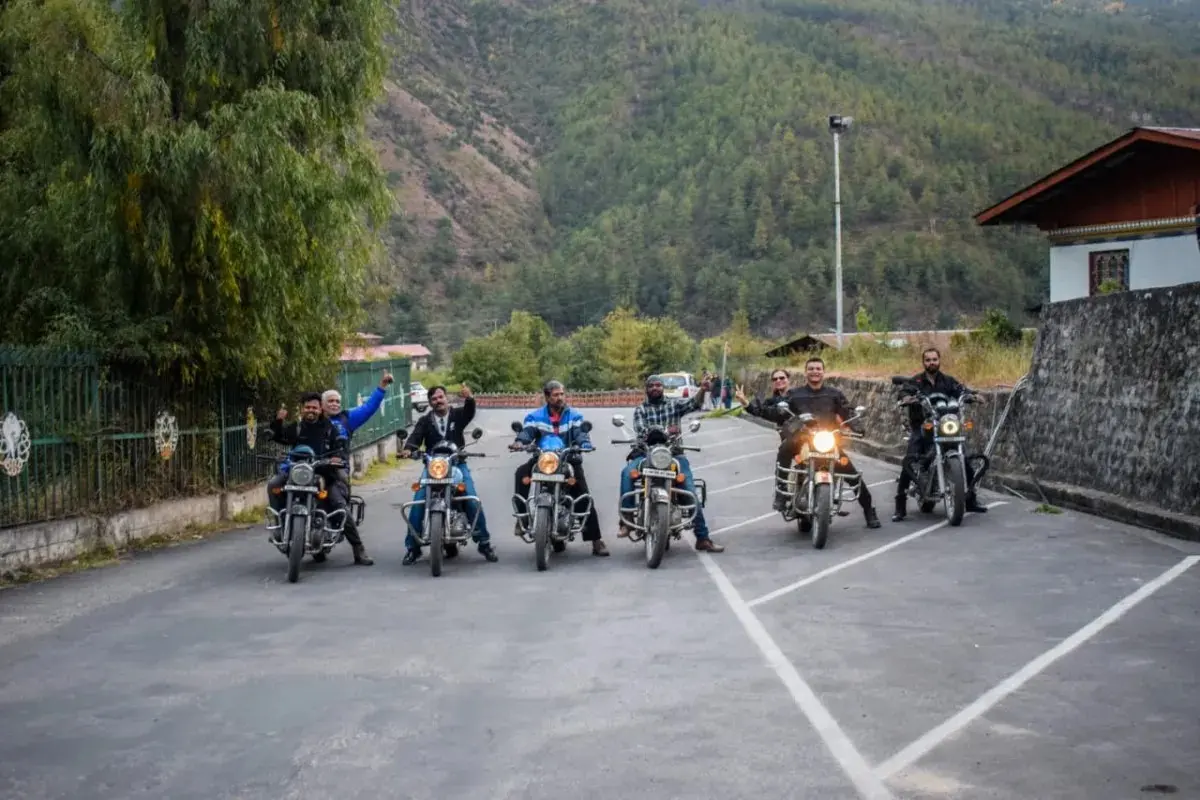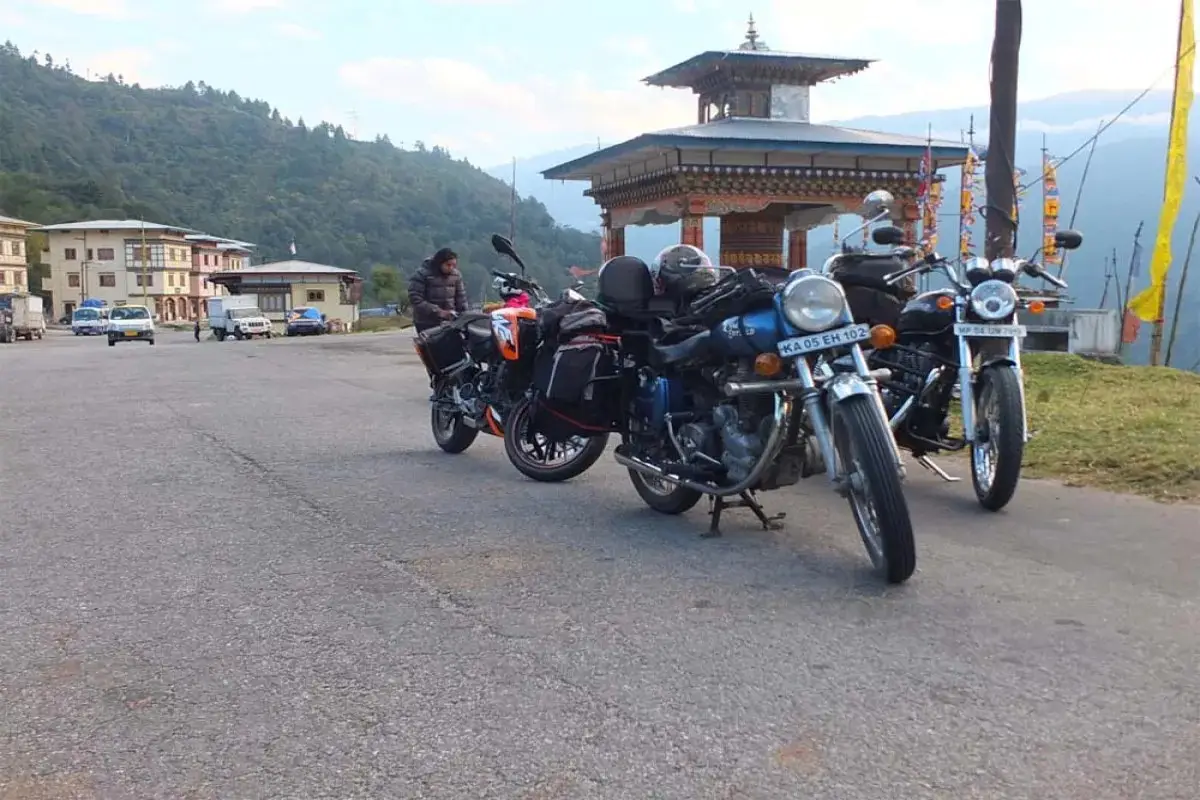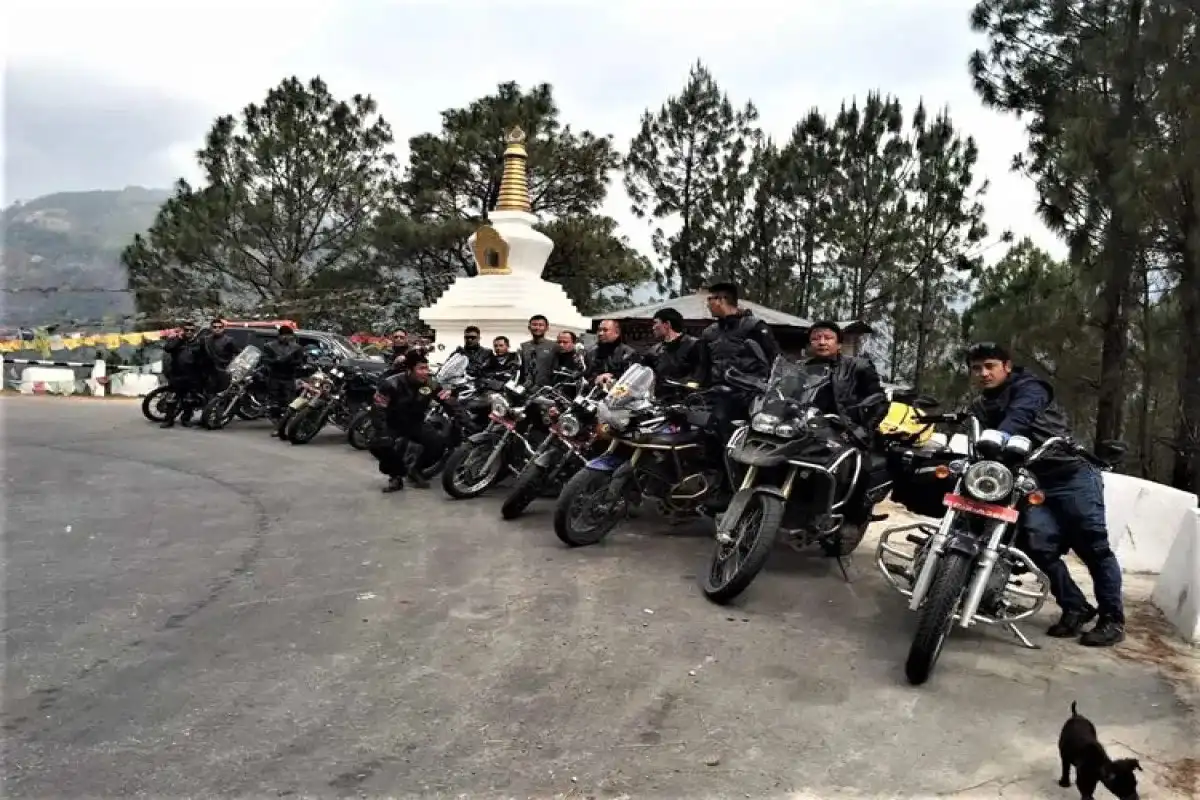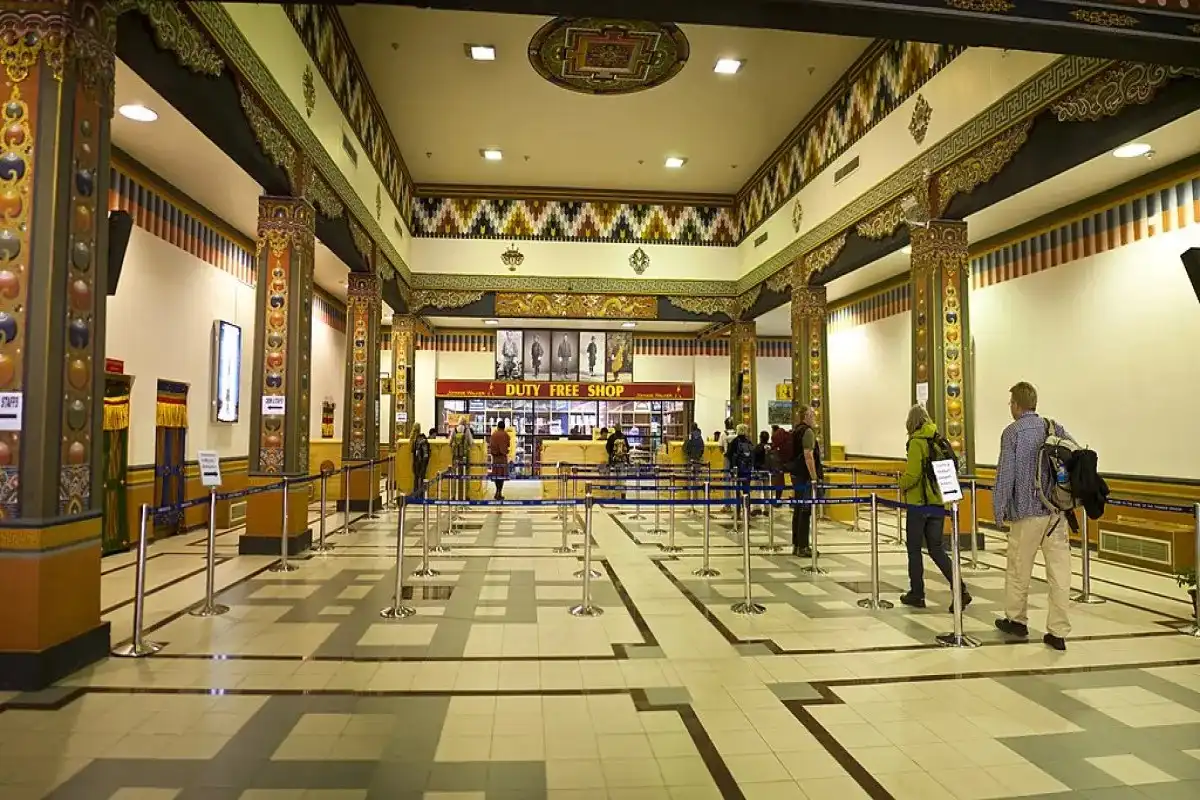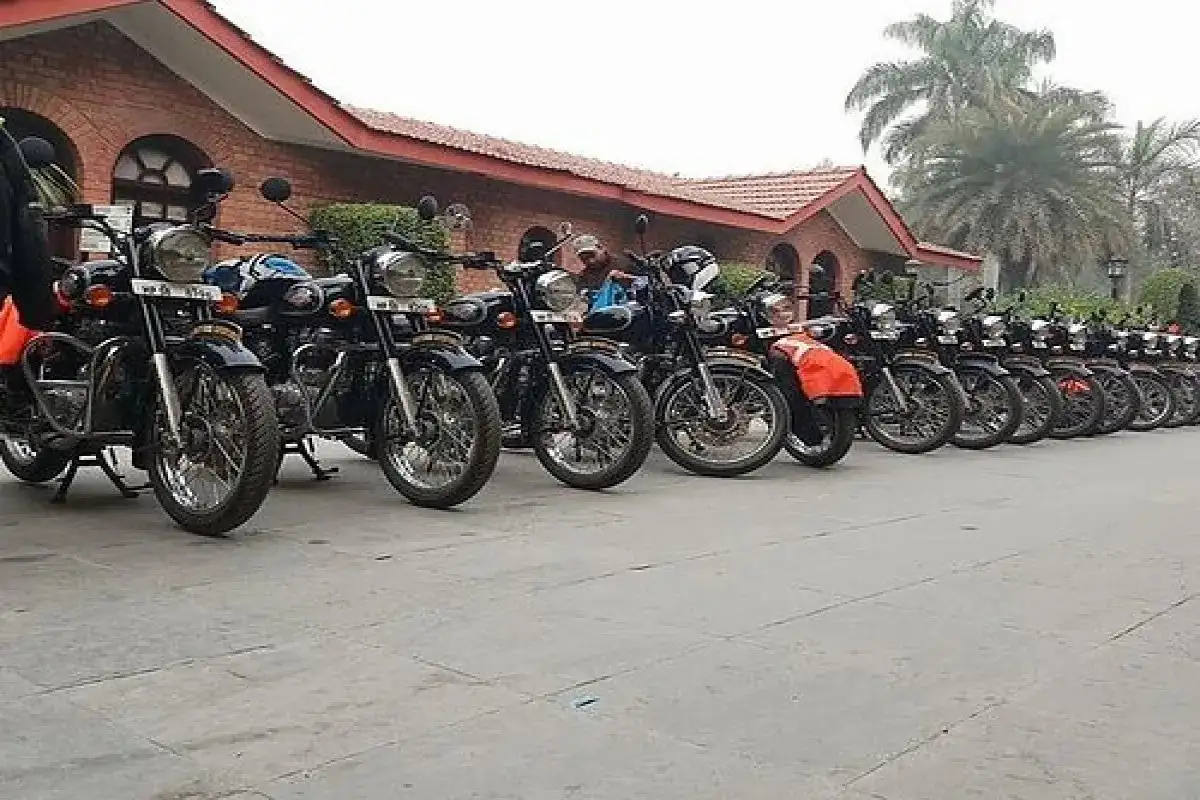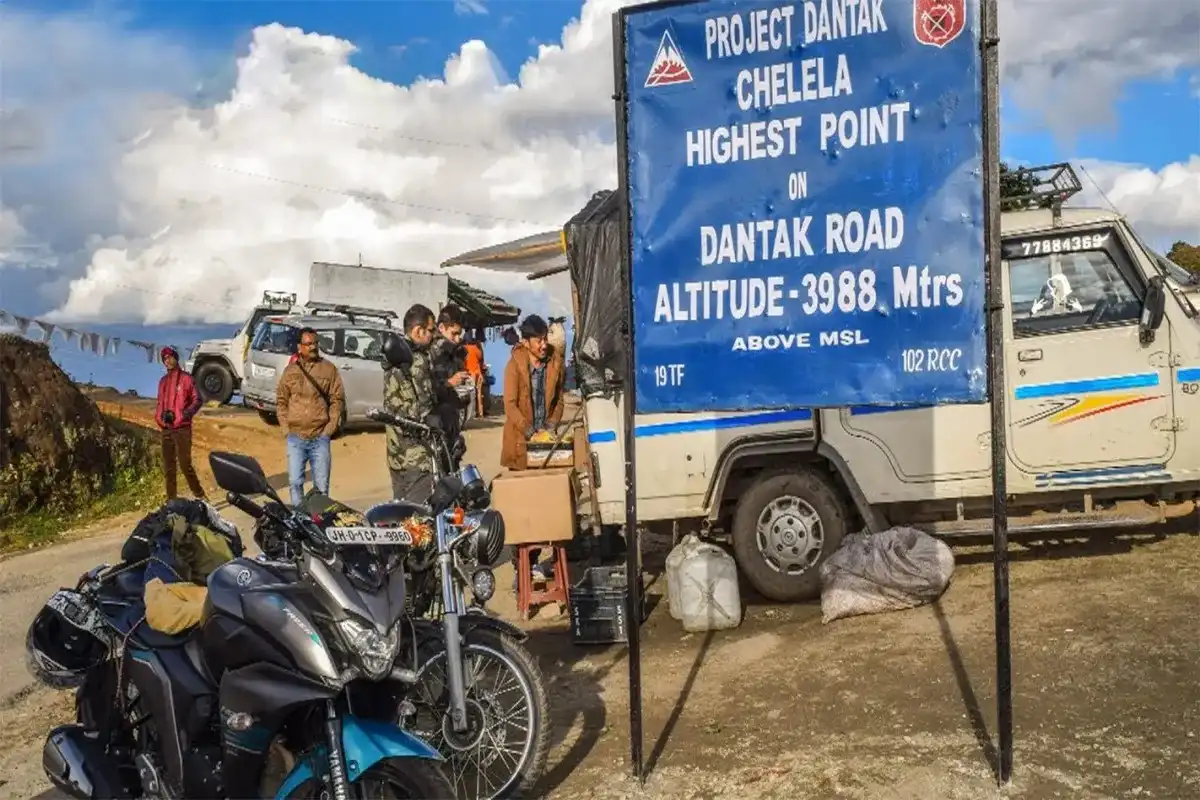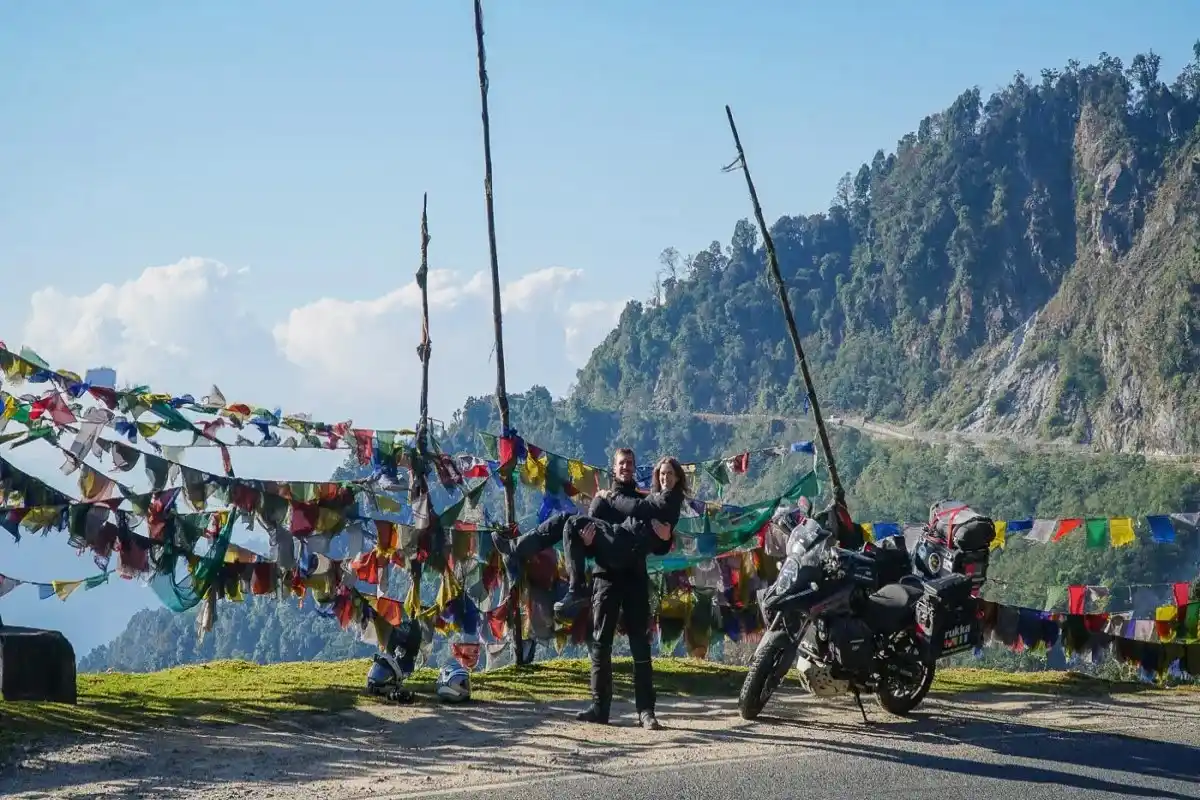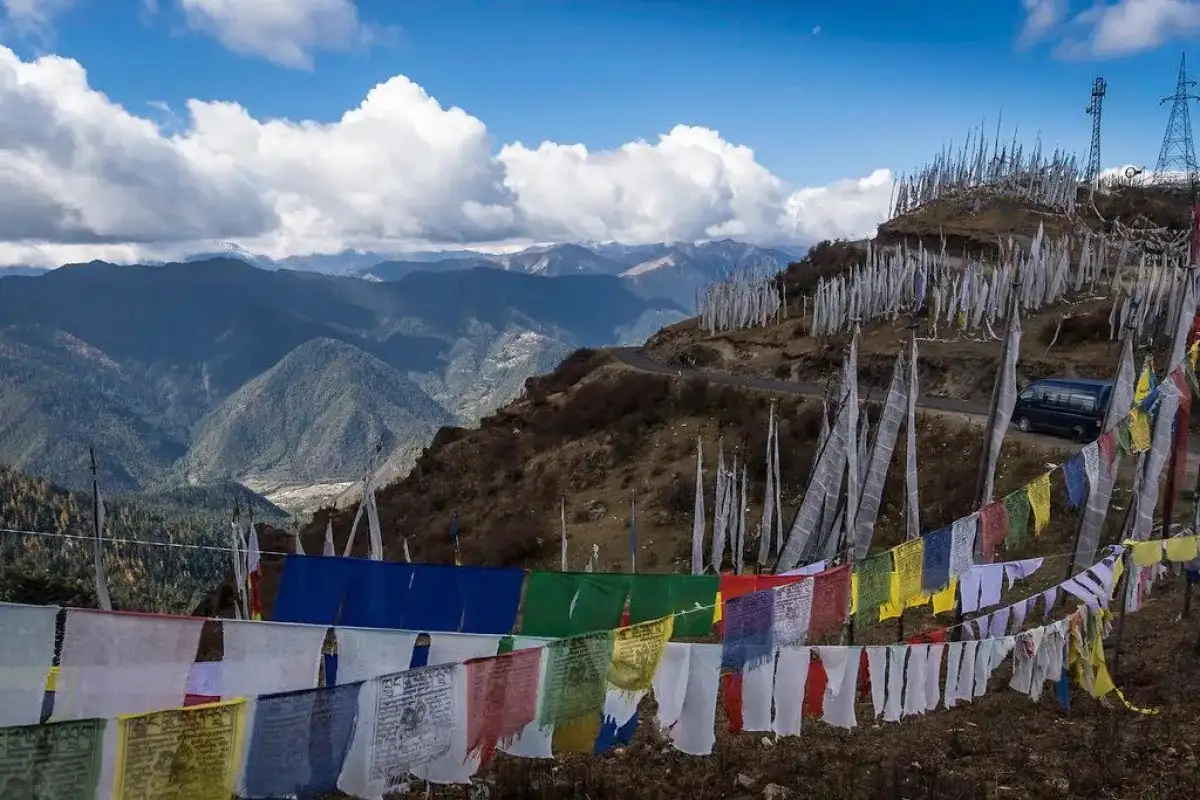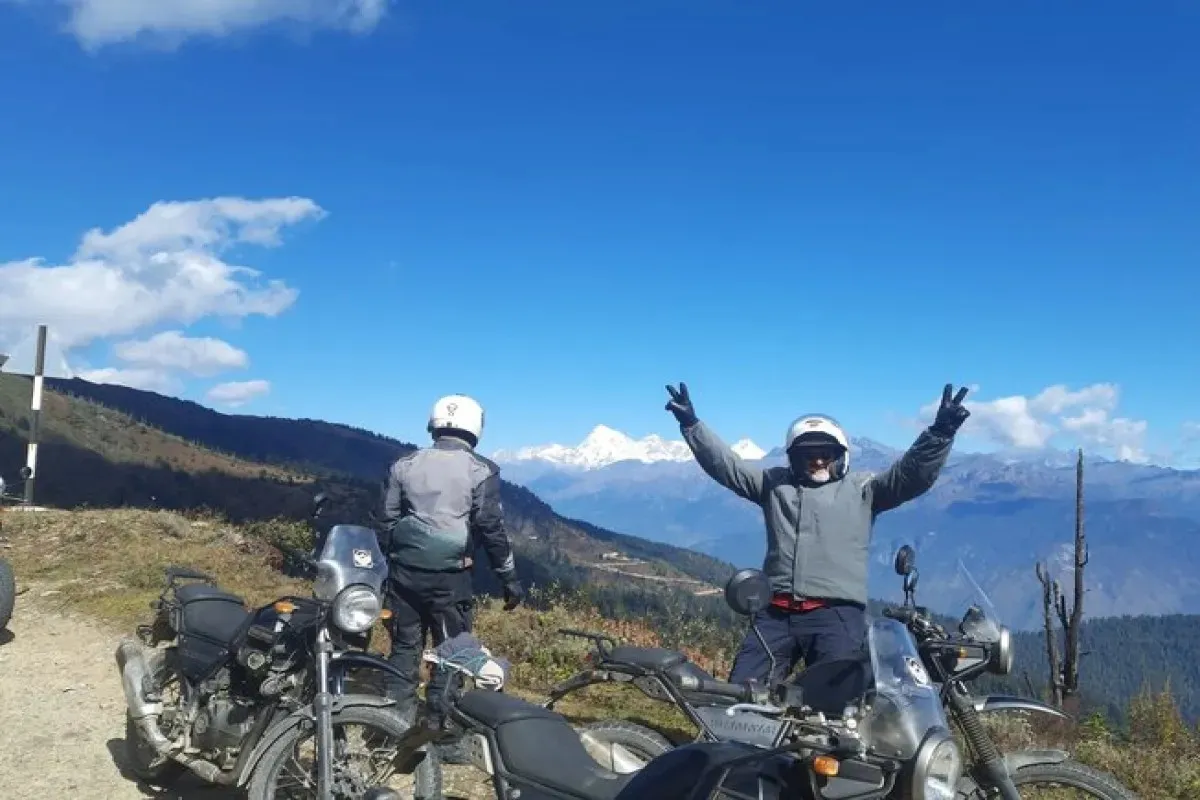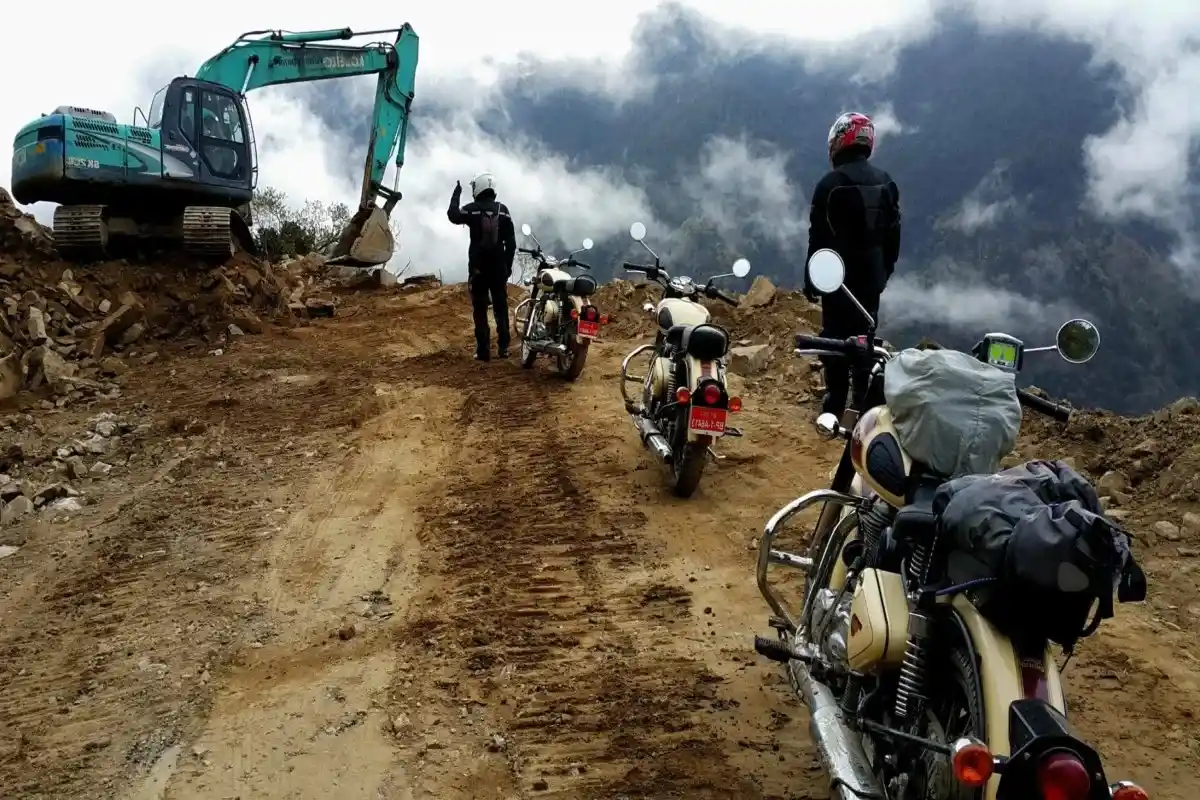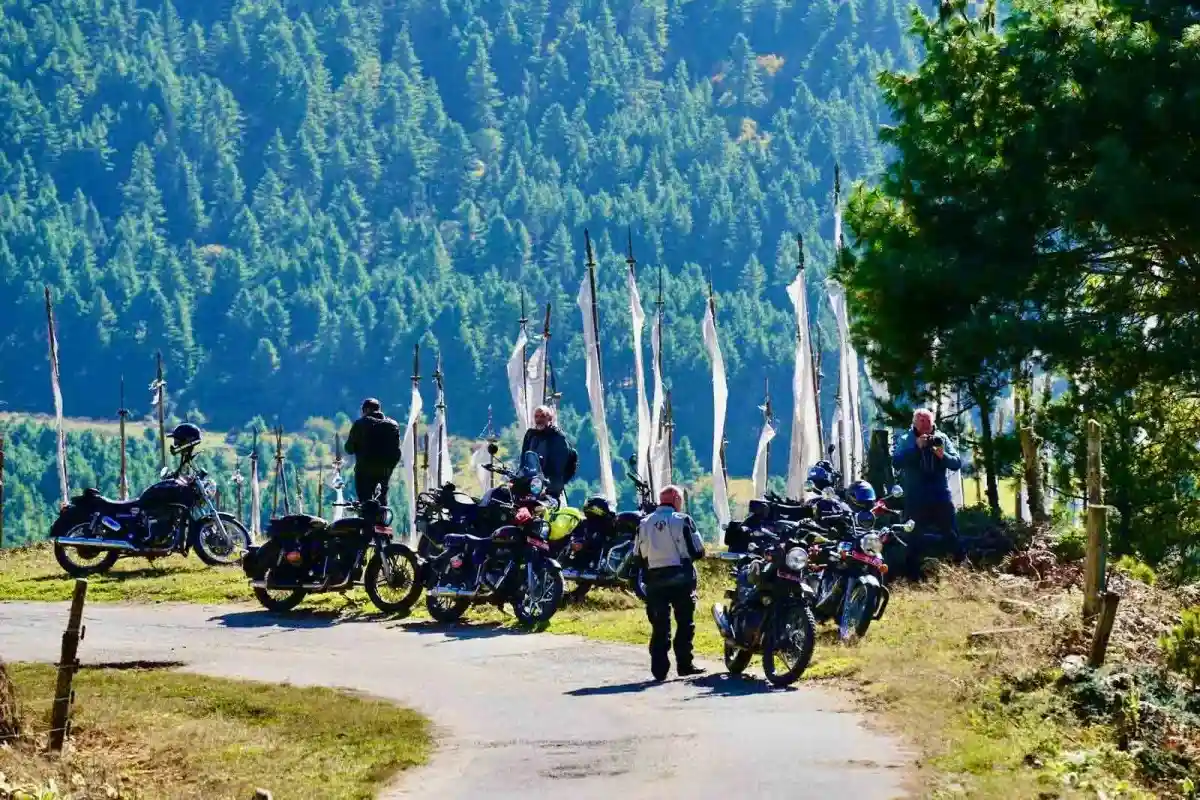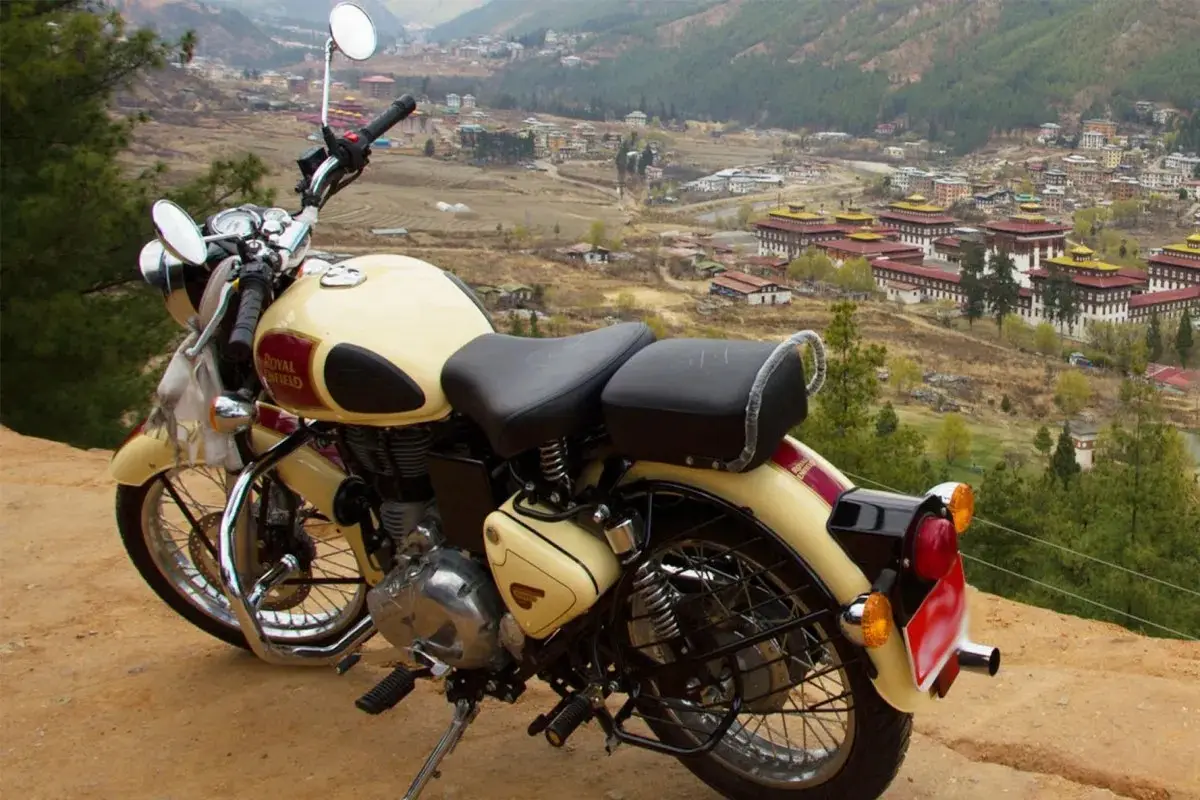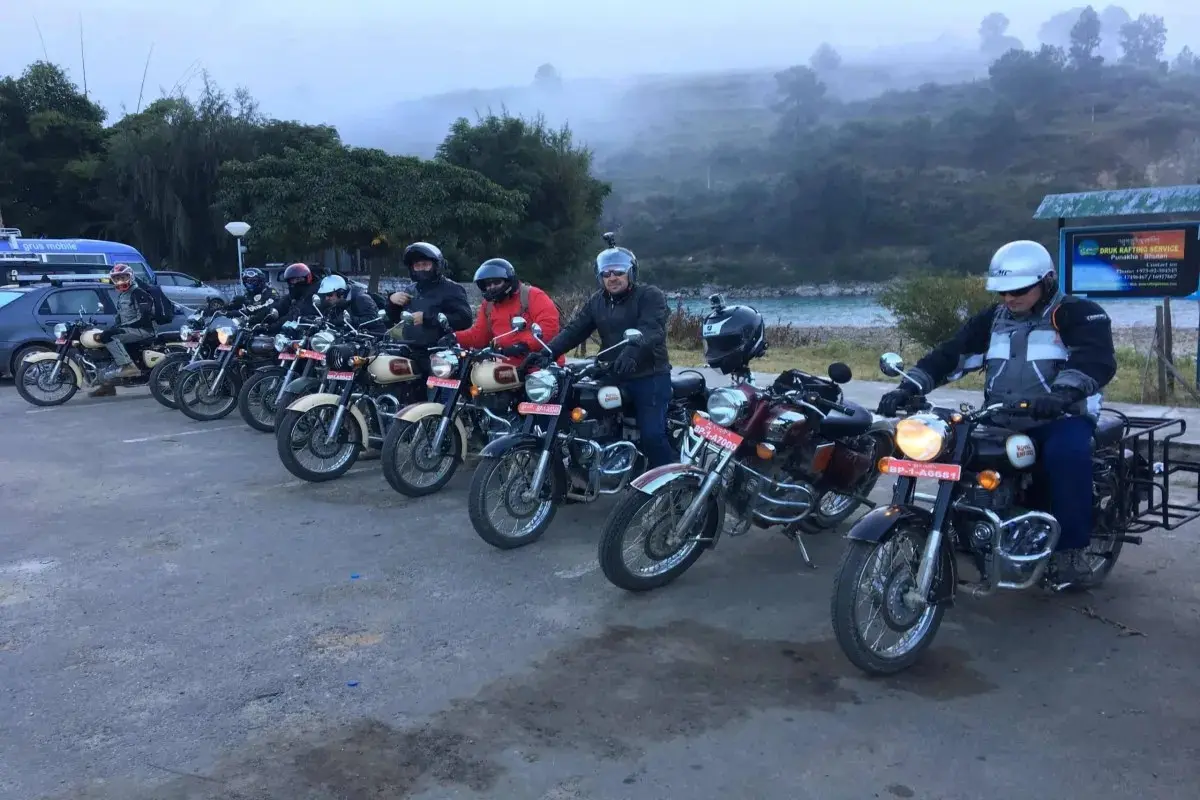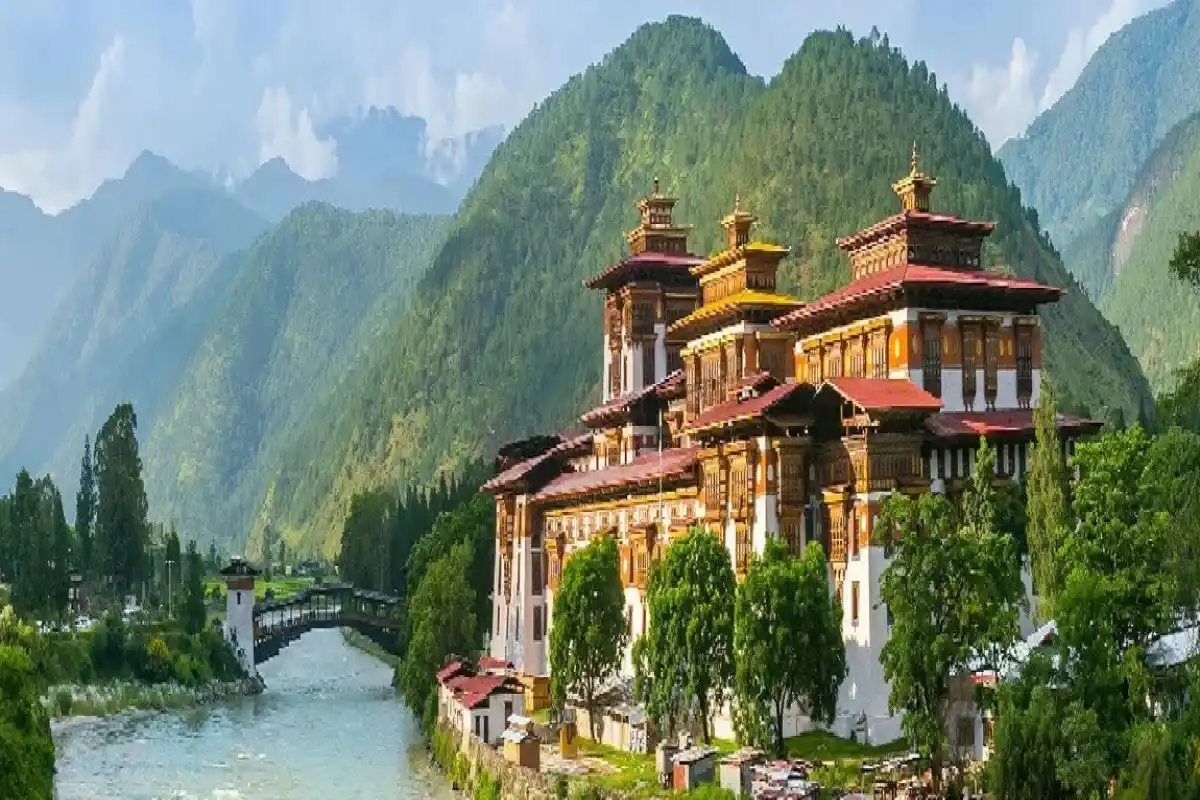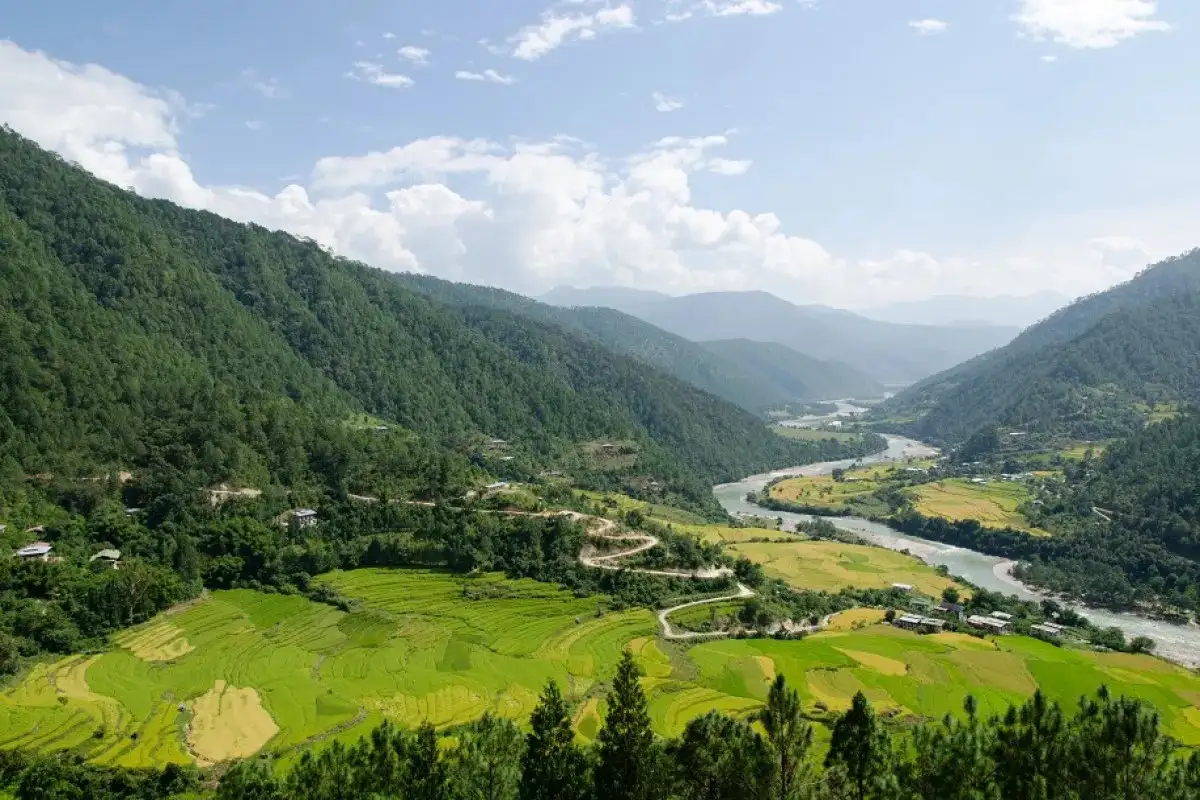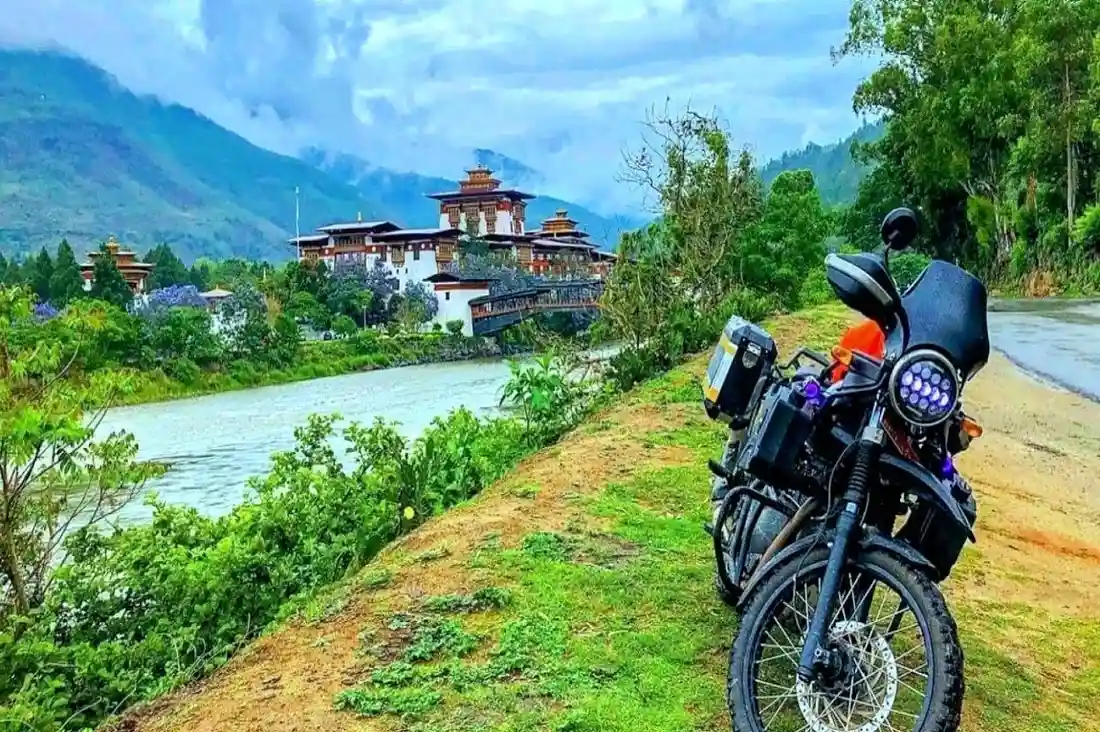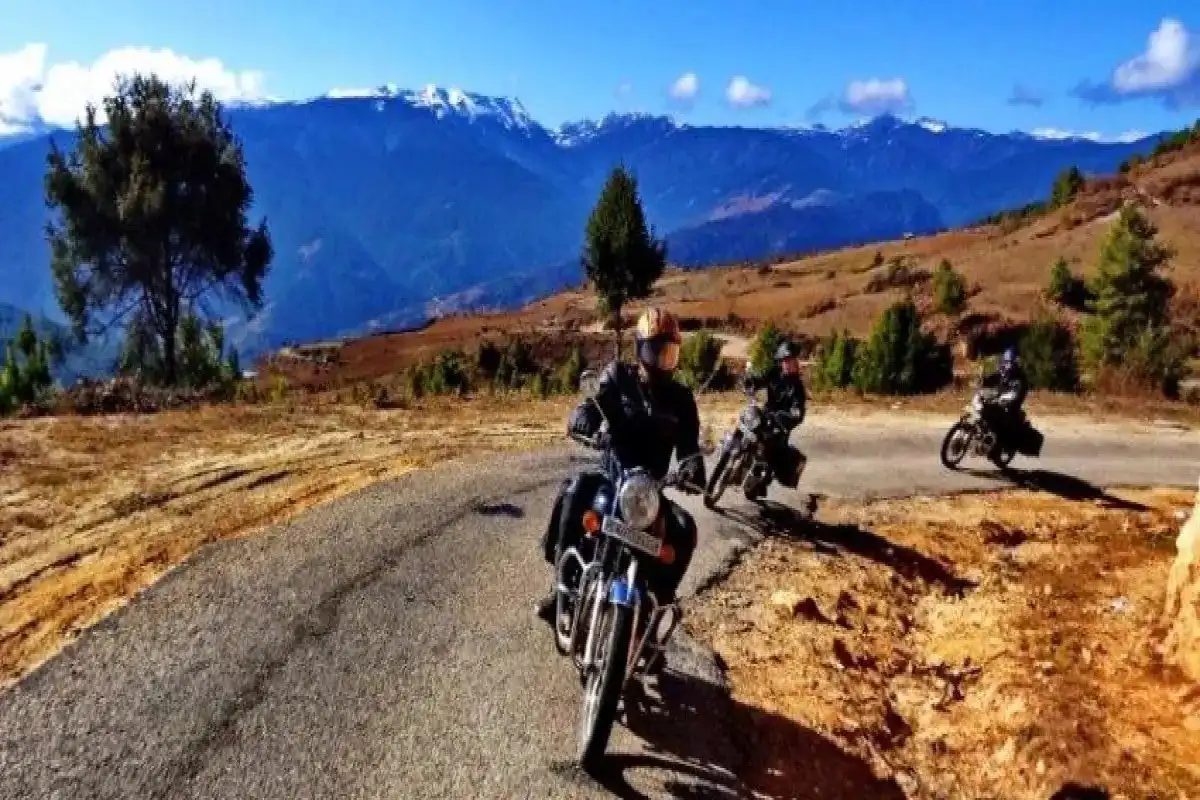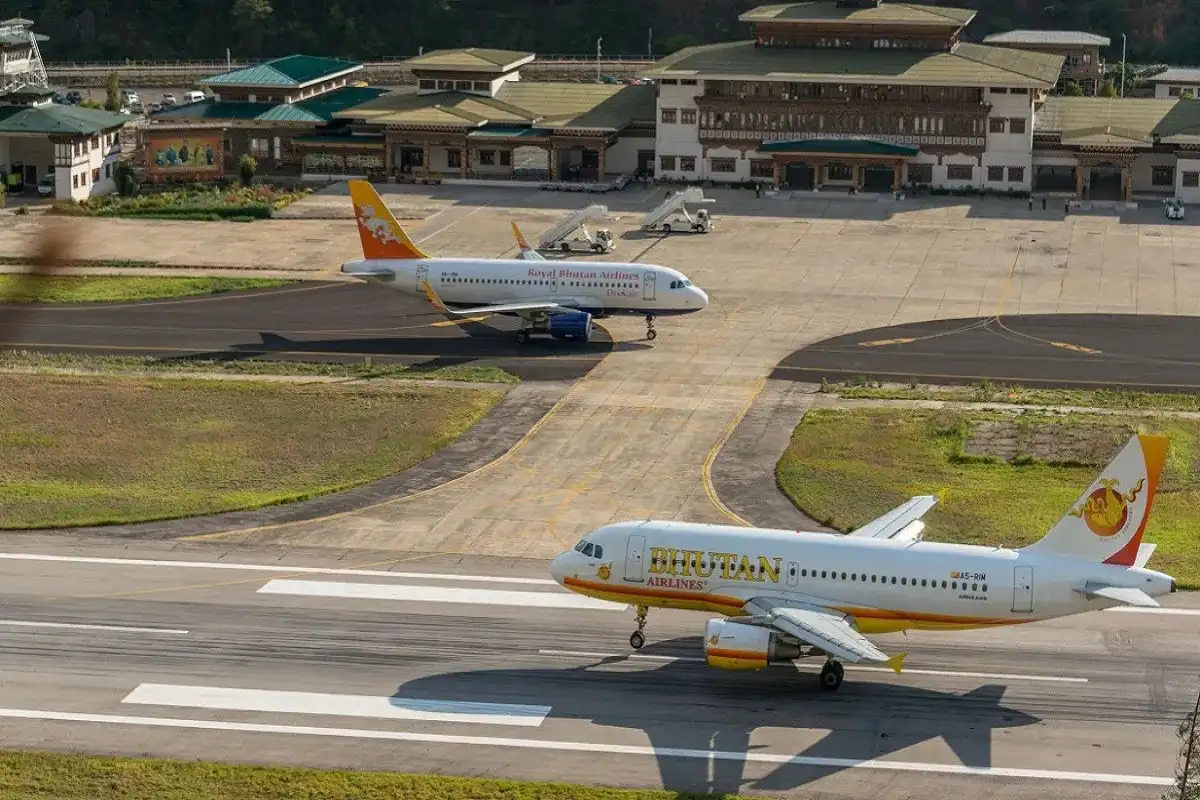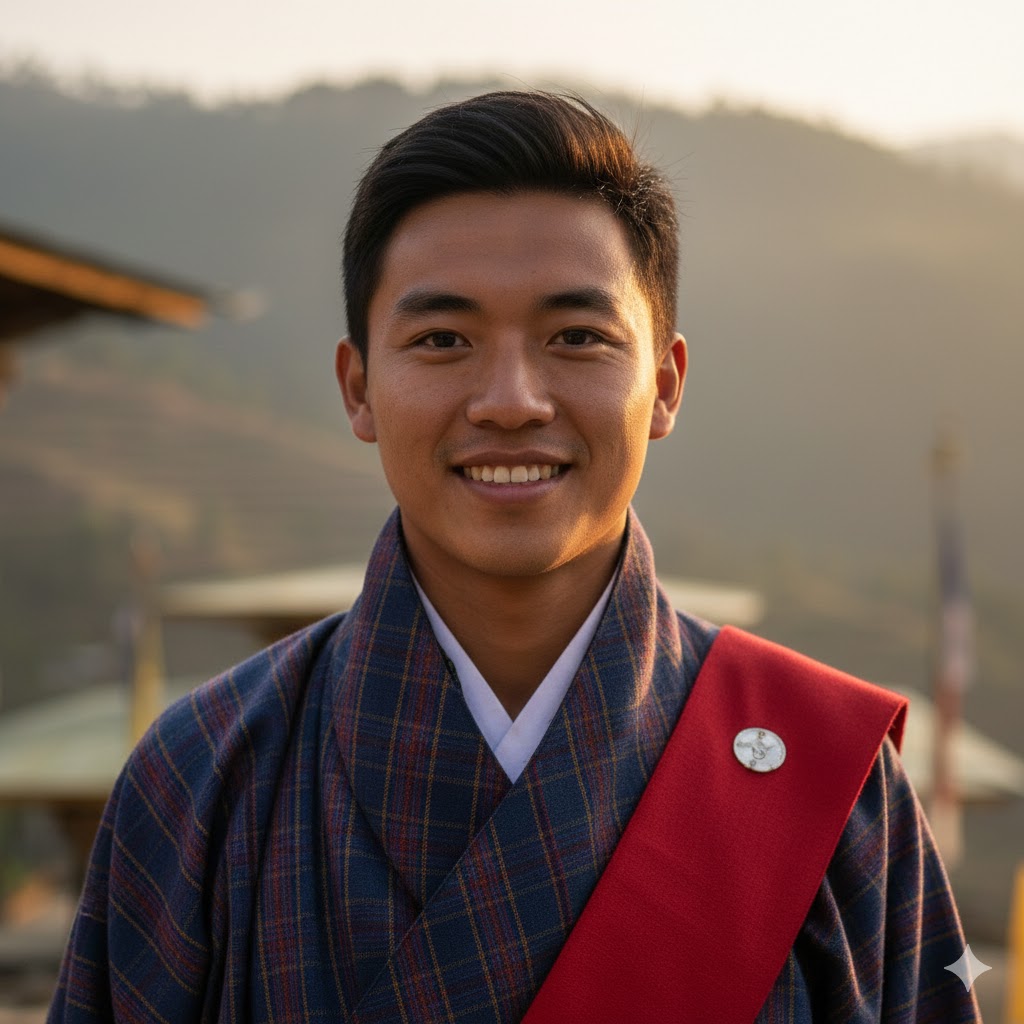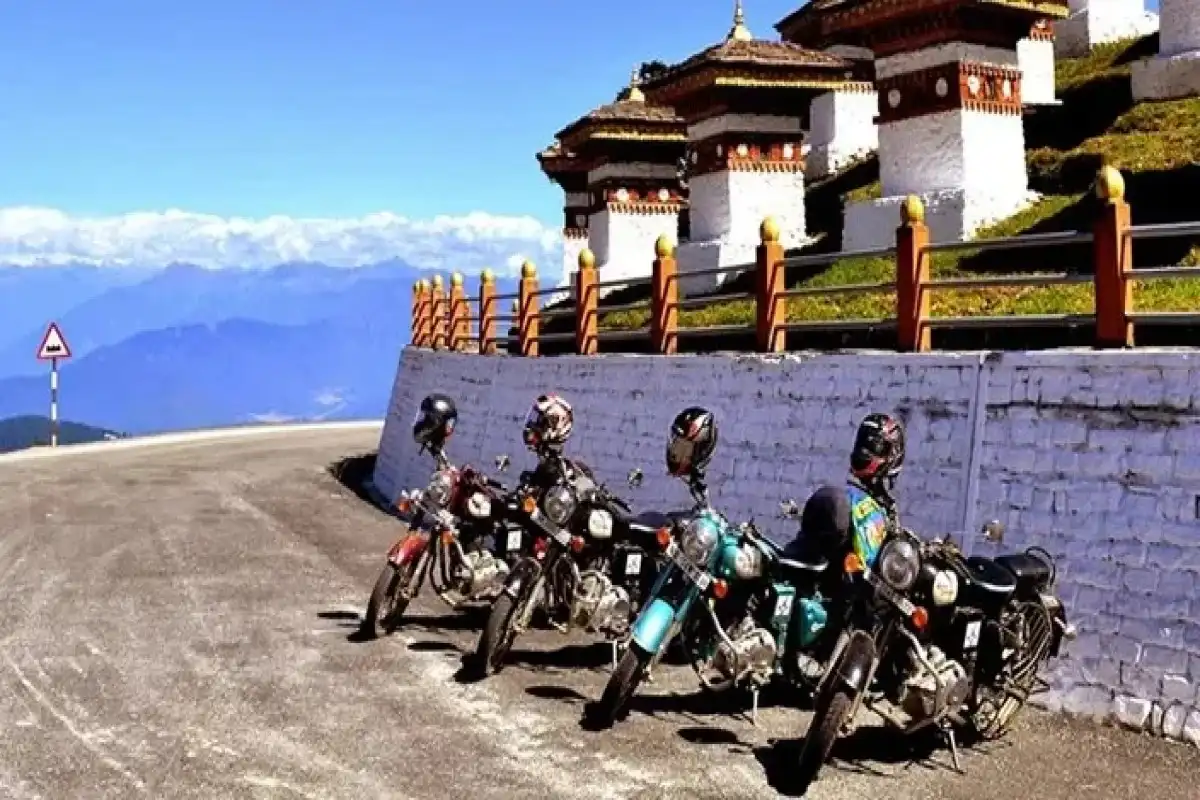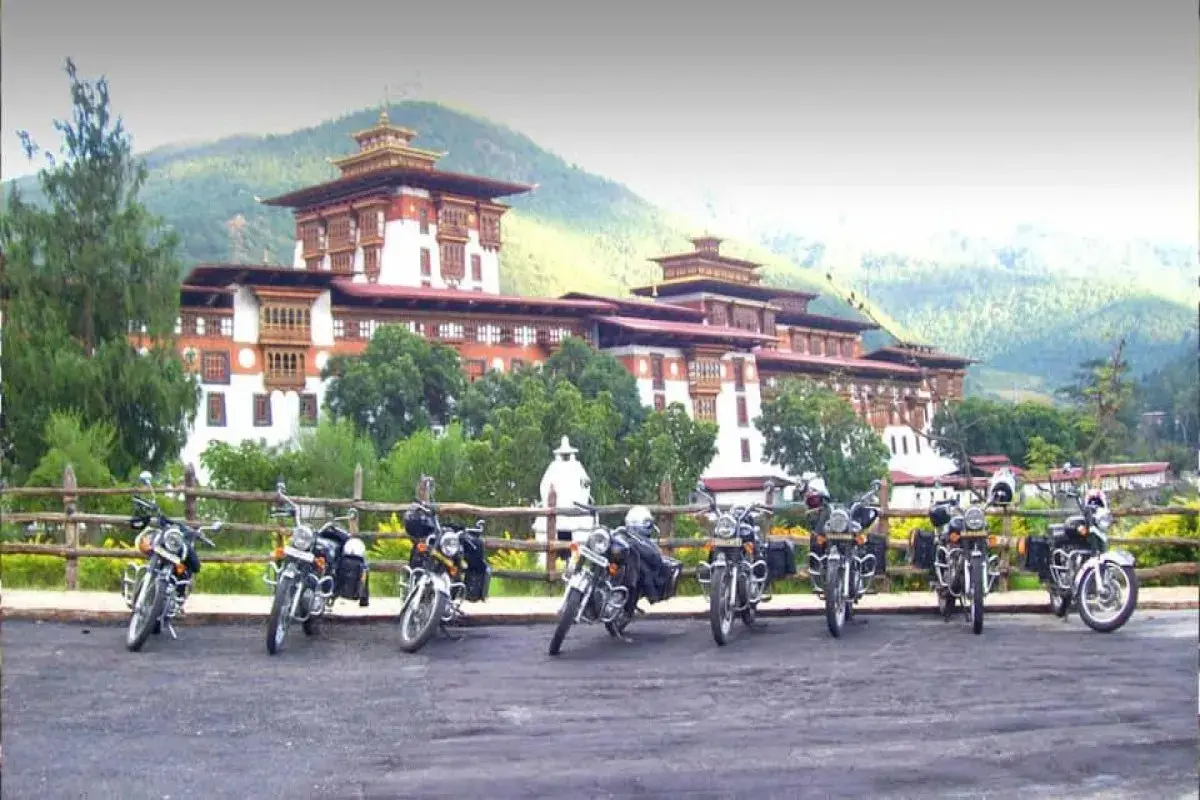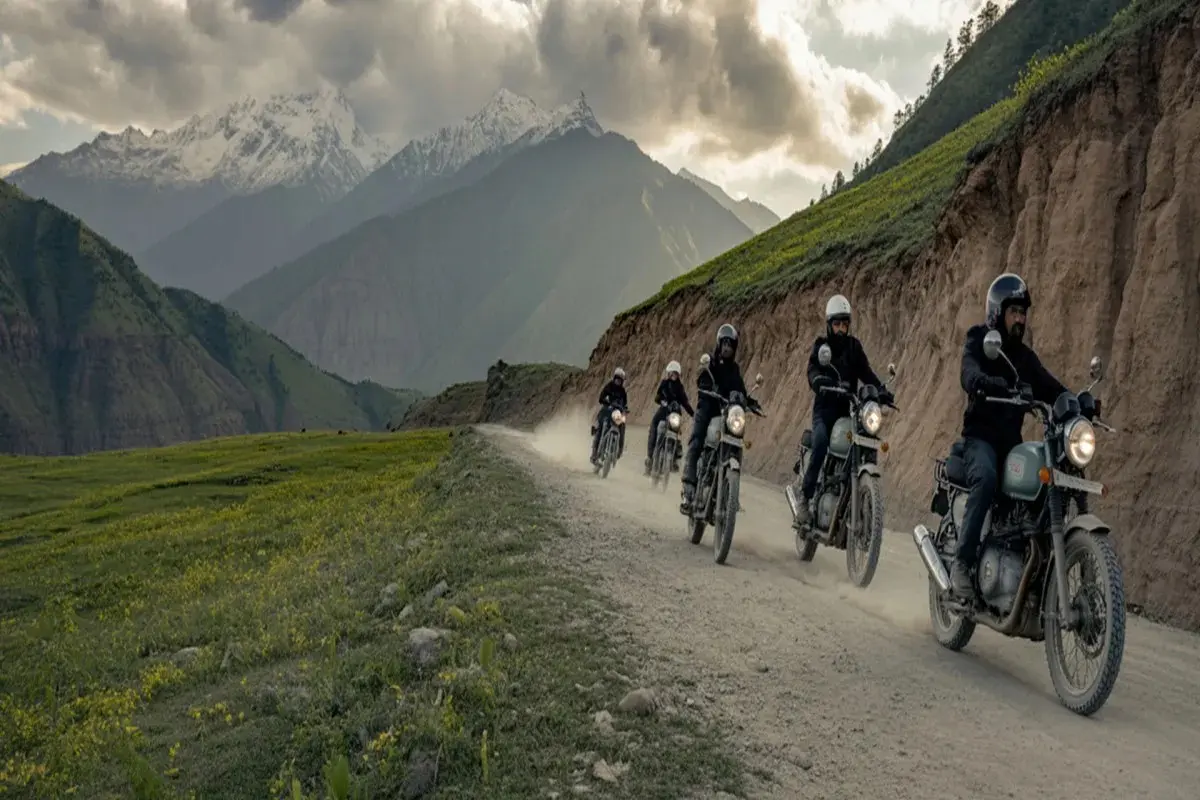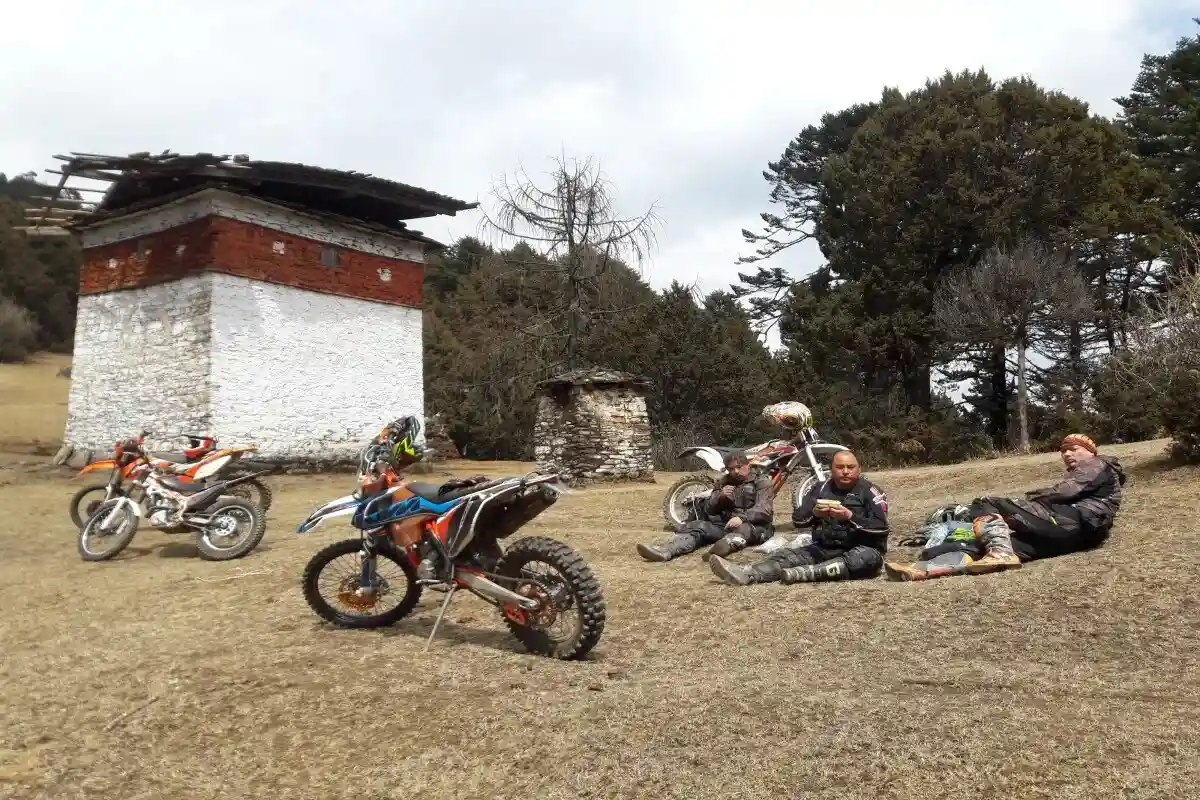Trans Bhutan Motorbike Rally: Paro to Haa Valley and Beyond - 6 Days
Get ready to take an adventure motorbike tour Bhutan through the peaceful and beautiful kingdom. The Trans Motorbike Rally is a recreational tour that takes you from Paro to Haa Valley and several other scenic spots. It's appropriate for motorbike riders who would enjoy exploring nature, culture, and adventure.
Highlights
- Explore the nearby places in the Haa valley
- Ride to Punakha via Dochu La Pass
- Visiting Thimphu and local villages
- Authentic Bhutanese Experience
Trip Overview
This tour offers an amazing view, wind-swept mountain roads, and clean mountain air. You'll drive over green valleys, snow-covered mountains, and picturesque villages. Every turn will yield a new view and a new story to pamper yourself with.
Travellers can expect a carefully mapped out itinerary, leisurely breaks, and welcoming local guides. You will get to witness the famous spots, meet friendly Bhutanese people, and savor authentic local food. Whether you're an experienced rider or in search of a new adventure, this tour offers you the perfect combination of thrill and serenity within only six memorable days.
Trip Highlights
The Trans Bhutan Motorbike Rally from Paro to Haa Valley tour offers exploration of different places in Haa Valley with beautiful scenaries all along the way. This tour is also a chance to explore the Bhutanese culture and cuisine. Some highlights of the Trans Bhutan Motorbike Rally are :
Explore the nearby places in the Haa valley
Haa Valley is a beautiful and tranquil place in the western direction. Small villages, hills, and trees encircle a village. This valley is the perfect place for nature enthusiasts. You can walk around the valley and see small shops and local houses. This valley has lots of peaceful places. You can visit temples, rivers, and monasteries. It is a perfect place to spend a night.
Ride to Punakha via Dochu La Pass
The journey to Punakha through Dochu La Pass is a peaceful and adventurous ride. You begin by heading east on the road. The road rises and will take you an hour to reach Dochu La Pass. You must ride carefully because the road is curved. You can take a break at the pass to enjoy the view of the mountains. After resting, you will ride downhill. The road becomes cooler as you move down. You will arrive in Punakha after a few hours of travel.
Visiting Thimphu and local villages
A trip to Thimphu is a serene and lovely experience. This clean, quiet town is encircled by hills. You can taste the delicious food, shop locally, and explore the Buddha statue in the city. You can proceed to the small nearby villages after exploring the city. The villages are serene and filled with wildlife. You can see farms, animals, and small wooden houses.
Authentic Bhutanese Experience
A true Bhutanese experience is peaceful, warm, and happy. Men wear the traditional gho, and women wear the traditional kira. Bhutanese food is spicy but yummy. You can experience authentic village life and savor butter tea in quaint wooden homes when you stay with a local family. Festivals like Tshechu are celebrated with vibrant, upbeat performances that include a lot of music and mask dance. The majority of people follow Buddhism. Every side of the country, you will find prayer flags, temples, and kind monks.
Exploring the diverse landscapes of Bhutan on a motorbike
Bhutan is a country with a different landscape. Mountains, verdant valleys, rivers, and forests are all traversed by the road. Every turn is showing you another kind of land, and it's always beautiful. The transition is sudden. You're riding in a green valley with rice paddies for an hour. The next hour, you're in the clouds looking down at tiny villages. Each place is unique. You can hear the birds, feel the wind, and smell the trees when you motorbike. You can pause anywhere you want to take in the scenery. You move slowly enough to take in the view but fast enough to see a lot in a day.
Essential things needed for the Motorcycle rally in Bhutan
There are a few things that you must bring with you to a motorcycle rally. First, make sure you take all your documents. A license and a passport are most important. Ensure that your motorcycle's tires, lights, and brakes are in optimal condition. Take a minimal toolkit in a bag. It is essential to wear a helmet, riding jacket, gloves, and boots for safety. Always follow the guide on the way. Drive slowly, follow traffic rules, be considerate to people, and keep the environment tidy.
Conclusion
Your motorbike tour of Bhutan is now at an end, but the experiences will remain with you for the rest of your life. You have seen green valleys, snow-capped mountains, old temples, and smiling villages in six days. You have met nice local people, had delicious food, and breathed the crisp mountain air. We hope that this trip left you with smiles, new memories, and tales. Bring back with you the smiles, the scenery, and the spirit of Bhutan as you depart.
This tour offers an amazing view, wind-swept mountain roads, and clean mountain air. You'll drive over green valleys, snow-covered mountains, and picturesque villages. Every turn will yield a new view and a new story to pamper yourself with.
Travellers can expect a carefully mapped out itinerary, leisurely breaks, and welcoming local guides. You will get to witness the famous spots, meet friendly Bhutanese people, and savor authentic local food. Whether you're an experienced rider or in search of a new adventure, this tour offers you the perfect combination of thrill and serenity within only six memorable days.
Trip Highlights
The Trans Bhutan Motorbike Rally from Paro to Haa Valley tour offers exploration of different places in Haa Valley with beautiful scenaries all along the way. This tour is also a chance to explore the Bhutanese culture and cuisine. Some highlights of the Trans Bhutan Motorbike Rally are :
Explore the nearby places in the Haa valley
Haa Valley is a beautiful and tranquil place in the western direction. Small villages, hills, and trees encircle a village. This valley is the perfect place for nature enthusiasts. You can walk around the valley and see small shops and local houses. This valley has lots of peaceful places. You can visit temples, rivers, and monasteries. It is a perfect place to spend a night.
Ride to Punakha via Dochu La Pass
The journey to Punakha through Dochu La Pass is a peaceful and adventurous ride. You begin by heading east on the road. The road rises and will take you an hour to reach Dochu La Pass. You must ride carefully because the road is curved. You can take a break at the pass to enjoy the view of the mountains. After resting, you will ride downhill. The road becomes cooler as you move down. You will arrive in Punakha after a few hours of travel.
Visiting Thimphu and local villages
A trip to Thimphu is a serene and lovely experience. This clean, quiet town is encircled by hills. You can taste the delicious food, shop locally, and explore the Buddha statue in the city. You can proceed to the small nearby villages after exploring the city. The villages are serene and filled with wildlife. You can see farms, animals, and small wooden houses.
Authentic Bhutanese Experience
A true Bhutanese experience is peaceful, warm, and happy. Men wear the traditional gho, and women wear the traditional kira. Bhutanese food is spicy but yummy. You can experience authentic village life and savor butter tea in quaint wooden homes when you stay with a local family. Festivals like Tshechu are celebrated with vibrant, upbeat performances that include a lot of music and mask dance. The majority of people follow Buddhism. Every side of the country, you will find prayer flags, temples, and kind monks.
Exploring the diverse landscapes of Bhutan on a motorbike
Bhutan is a country with a different landscape. Mountains, verdant valleys, rivers, and forests are all traversed by the road. Every turn is showing you another kind of land, and it's always beautiful. The transition is sudden. You're riding in a green valley with rice paddies for an hour. The next hour, you're in the clouds looking down at tiny villages. Each place is unique. You can hear the birds, feel the wind, and smell the trees when you motorbike. You can pause anywhere you want to take in the scenery. You move slowly enough to take in the view but fast enough to see a lot in a day.
Essential things needed for the Motorcycle rally in Bhutan
There are a few things that you must bring with you to a motorcycle rally. First, make sure you take all your documents. A license and a passport are most important. Ensure that your motorcycle's tires, lights, and brakes are in optimal condition. Take a minimal toolkit in a bag. It is essential to wear a helmet, riding jacket, gloves, and boots for safety. Always follow the guide on the way. Drive slowly, follow traffic rules, be considerate to people, and keep the environment tidy.
Conclusion
Your motorbike tour of Bhutan is now at an end, but the experiences will remain with you for the rest of your life. You have seen green valleys, snow-capped mountains, old temples, and smiling villages in six days. You have met nice local people, had delicious food, and breathed the crisp mountain air. We hope that this trip left you with smiles, new memories, and tales. Bring back with you the smiles, the scenery, and the spirit of Bhutan as you depart.
Short Itinerary
Arrival in Paro. Meet your guide, get briefed about the motorbike tour, and enjoy a short ride around the valley. Relax at the hotel.
Ride from Paro to Haa Valley via Chele La Pass. Stop for tea and photos, then reach your homestay and enjoy a campfire evening.
Explore Haa Valley—visit temples, local villages, hike the panorama trail, and relax by the riverbank.
Ride from Haa to Thimphu via Chele La Pass. Visit Buddha Dordenma, Tashichho Dzong, and the local market in the evening.
Ride from Thimphu to Punakha via Dochula Pass. Explore Punakha Dzong, nearby villages, and the local market. Overnight in Punakha.
Ride from Punakha back to Paro. Relax, have final lunch, then transfer to the airport or stay overnight in Paro.
Price Includes
- Pick-up and drop-off services
We provide a pick-up service from the airport to the hotel on your arrival day and from the hotel to the airport on the departure day.
- Lunch, Breakfast, and Dinner
All meals during the trek will be provided by the company. However, personal food items like coffee, tea, cold drinks, etc, are not included in the package.
- A guide proficient in English
A certified, English-speaking guide will accompany you throughout the trip. The guide will offer information about the trail, culture, nature, and history, and ensure your safety and a smooth experience.
- Comfortable SUV vehicle
A private SUV will be used for road travel before or after the trek. These vehicles are ideal for Bhutan’s hilly terrain and provide a comfortable ride.
- All types of entry costs
This covers all permit fees, monument entrance fees, park fees, and any other official charges required for trekking or sightseeing activities during the tour.
- Professional Drive
We ensure a safe and smooth drive during your tour. We have licensed and experienced drivers for that.
- Sleeping bag and tent
Quality sleeping bags and tents are provided for your comfort and warmth during the camping nights on the trek. So, you don’t have to worry about buying a new one.
- Farewell dinner
A special farewell meal, typically arranged in a traditional restaurant, is offered at the end of the tour to celebrate the journey and thank the participants.
- Evening Tea/coffee with snacks
Each evening, you’ll be served tea or coffee along with light snacks like biscuits and popcorn.
- Drinking Water
Safe and clean drinking water is provided throughout the trek
- Pick-up and drop-off services
We provide a pick-up service from the airport to the hotel on your arrival day and from the hotel to the airport on the departure day.
- Lunch, Breakfast, and Dinner
All meals during the trek will be provided by the company. However, personal food items like coffee, tea, cold drinks, etc, are not included in the package.
- A guide proficient in English
A certified, English-speaking guide will accompany you throughout the trip. The guide will offer information about the trail, culture, nature, and history, and ensure your safety and a smooth experience.
- Comfortable SUV vehicle
A private SUV will be used for road travel before or after the trek. These vehicles are ideal for Bhutan’s hilly terrain and provide a comfortable ride.
- All types of entry costs
This covers all permit fees, monument entrance fees, park fees, and any other official charges required for trekking or sightseeing activities during the tour.
- Professional Drive
We ensure a safe and smooth drive during your tour. We have licensed and experienced drivers for that.
- Sleeping bag and tent
Quality sleeping bags and tents are provided for your comfort and warmth during the camping nights on the trek. So, you don’t have to worry about buying a new one.
- Farewell dinner
A special farewell meal, typically arranged in a traditional restaurant, is offered at the end of the tour to celebrate the journey and thank the participants.
- Evening Tea/coffee with snacks
Each evening, you’ll be served tea or coffee along with light snacks like biscuits and popcorn.
- Drinking Water
Safe and clean drinking water is provided throughout the trek
Price Excludes
- International Airfare
- Visa Charges and Insurance
- Individual expenditures
- Additional-day lodging
- Laundry and telephone expenses
- Tips for the guide and the porter
- International Airfare
- Visa Charges and Insurance
- Individual expenditures
- Additional-day lodging
- Laundry and telephone expenses
- Tips for the guide and the porter
Trans Bhutan Motorbike Rally: Paro to Haa Valley and Beyond Itinerary
Your adventure will start with your arrival at Paro International Airport on the first day. Our representative will welcome you here. Next, you will be escorted to your lodging. You will have your initial view of the valley on your hotel journey. Upon arrival, you will register at your hotel room. Then, you will have breakfast. Next, you may unwind and refresh.
You will visit our office in the evening. You will meet your guide here. A guide will provide information on the motorbike tour Bhutan. Here, you can ask about any elements of the tour. You will meet with other riders here. Then, you will go on a brief excursion around the valley to familiarize yourself with the motorbike. Next, you will return to the hotel. You will eat lunch and relax tonight.
You will begin your ride after you have eaten breakfast. Then, you will gear up. Next, you will gather with the group. Here, your guide will summarize your route and the safety measures you should follow. Then, you will start your bike and move in a western direction. You will start your ride by ascending. On the path, you can see various trees. As you climb higher, you can see the dramatic view.
After riding for an hour, you will reach Chele La pass. Here, you can stop for a time. You can also capture the photo. Then, you will stop at the nearby tea stall. Next, you will drink tea. While drinking tea, you can also admire the view. Then, you will begin your ride and proceed to the Haa Valley.
After a long journey, you will reach the Haa valley. Once you get here, a landscape of villages will amaze you. Then, you will move to your homestay. After reaching the homestay, you can park your bike and open the gears. Next, you will relax in the room. In the evening, you can enjoy setting a campfire.
On this day, you have to wake up early. After that, you will visit Lhakhnag Karpo and Nagpo. Once you get there, you will see ancient temples. Here, you can meditate for hours. Next, you will interact with locals. Then, explore traditional Bhutanese shops. After that, you will return to your accommodation. Next, you will have your lunch. Then, you can relax.
Then, you will start your bike. You will explore the nearby villages. You will visit Lechuna and Uesu. Here, you will walk through farmhouses. You will meet with families and learn about local customs. After that, you will hike to the Haa panorama trail. While hiking, you will pass through the forest and yak pastures. From the top, you may have a panoramic vista of the valley and the peaks.
In the evening, you will stroll along the riverbank. Here, you can sit, watch the bird, and capture some photos. After that, you will return to the hotel. On this day, you will stay at the Haa Valley.
After rising up, you will be fresh. Then, you will pack your bags. After that, you will enjoy breakfast. Next, you will tie your bags to the bike. Then, you will gather with groups. Your guide will describe the route. The drive will be scenic, and you will stop in several spots along the way. You will start your ride by ascending. After riding for some time, you will reach Chele La pass. Here, you can stop and enjoy the panoramic view of the peaks. Then, you will take a short walk around waving prayer flags.
After enjoying Chele La pass, you will move to Thimphu. After a short ride, you will reach the valley. Once you arrive, you will put your bags in the room. Then, you will eat lunch. In the evening, you will explore the chorten, fort, and huge statue of Buddha. Then, you will explore the local market. Here, you can buy souvenirs to take with you. After that, you will return back to the hotel.
Upon awakening, you can have breakfast at your hotel. Then, you will dress in gear and connect with your group. Next, you will start your motorcycle and begin the expedition to Punakha. After a duration of riding, the route will direct you to the Dochula Pass. From this vantage point, you will witness a stunning vista of several summits. You may pause briefly for a picture. Then, you will have coffee in a nearby cafe. Next, you will continue on your adventure.
Upon completion of a long journey, you will arrive in Punakha. Upon arrival, you will register for a room. You may relax for an hour. In the afternoon, you will explore some of the sites. You will visit the beautiful Punakha fort. Then, you will ride to nearby villages. Next, you will explore the market of Punakha. You will thereafter return to the hotel. Upon arriving at the hotel, you will park your bike. Then, you will enjoy a local dinner. On this day, you will stay in Punakha.
Your ride will commence after breakfast. On this day, you will ride on the main highway. The ride will be easy as you ride on the highway. Along the way, you can take a small break. During the break, you can drink water and tea. You may also capture images of and appreciate nature. Following many hours of biking, you will arrive in Paro by afternoon. Upon arrival, you will proceed to the lodging. In a hotel, you can open the gear and relax. Next, you will eat a final lunch with your colleagues.
After finishing lunch, you will pack your bags. Then, you will prepare to return to your designated location. We will arrange for the car to transport you to your destination. If you like to remain today, you may stay in Paro and return to your place by tomorrow. If time permits, you may take a last walk around Paro Valley. If you are from other countries, we will drop you at the airport 3 hours before your flight.
Know Before You Travel
-
Bhutan is a small, mountainous nation.:
It's stunning and peaceful. Motorcycling there is a great adventure. The roads zigzag through enormous green valleys, wonderful mountains, and quiet villages. Every bend uncovers something new and unique. The roads are not crowded. The best trek is from Bumthang to Mongar and Trashigang. These roads traverse Bhutan's east. You'll drive through cliffs, deep gorges, and forests. A motorbike ride in Bhutan is not just about the journey. It's about peace, nature, and bliss.
Map-trans-bhutan-motorbike-rally-paro-to-haa-valley-and-beyond-6-days
Download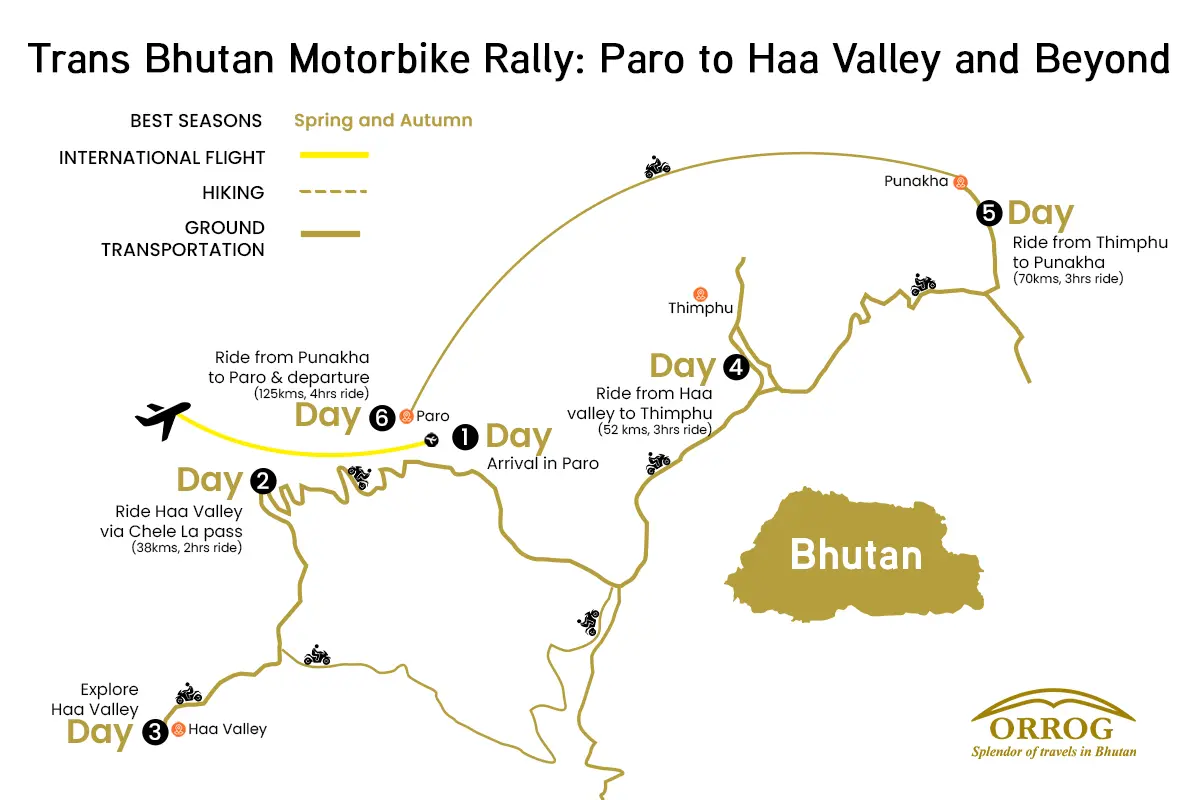
Trans Bhutan Motorbike Rally
FAQs for Trans Bhutan Motorbike Rally: Paro to Haa Valley and Beyond
Orrog is known for leading great treks and rides. Our skilled leaders and staff take care of all your travel needs. We have several years of experience.
A Bhutan bike tour offers amazing views, old monasteries, and mountain passes. You can enjoy all this on your bike. A motorcycle tour in Bhutan or a bike tour offers excitement and peace for travelers.
Bhutan has amazing motorcycle routes, like Dochula Pass. But beginners should have some riding experience. The mountain roads are winding, and the weather can change in an instant.
You must have a valid license from your nation to take part in the tour. If you don't have a license and any sort of damage happens, you will not be safe. They will fine or imprison you.
Bhutan bike tour packages often cover rental motorcycles, fuel, accommodation, permits, support vehicles, and a local guide. In a Bhutan bike trip package, we also offer cultural experiences.
Spring and autumn are ideal for a Bhutan two-wheeler tour. In these seasons, you will find pleasant weather and clear mountain views.
Yes, you can rent motorbikes from nearby locations. If you're curious about costs, motorbike prices in Bhutan vary depending on the model. Royal Enfield is a popular choice that is easy to find.
Yes, you need permits for the motorcycle tour. We will arrange all the permits for the trip. If you are from Bhutan, you should not need any permit.
A Bhutan motorcycle tour gives you freedom and a chance to connect with nature. It also takes you to unique trails. It’s a unique way to experience Bhutan’s pristine environment and spiritual culture at your own pace.
: Bhutan follows Bhutan Time (BTT), which is GMT +6 hours.
No, Bhutan does not use daylight saving time.
: Yes, if your phone has roaming and automatic time settings enabled.
Bhutan is 15 minutes ahead of Nepal and 30 minutes ahead of India.
Both 12-hour and 24-hour formats are commonly used. Clarify with your guide if unsure.
Bhutan follows Bhutan Time (BTT), which is UTC/GMT +6 hours. This time zone remains consistent throughout the year.
No, Bhutan does not observe daylight saving time. The country maintains the same time year-round.
Bhutan is 30 minutes ahead of India. For example, 12:00 PM in India is 12:30 PM in Bhutan.
You need a visa and all necessary permits for your trip. These documents can not be received on the day of your arrival, so they must be processed before coming here. After you book a trip with us, we will manage these papers for you. Your Bhutan visa is arranged by Orrog as part of the package.
The main way to come to Bhutan is through Paro International Airport, which is well-connected to cities like Bangkok, Delhi, Kathmandu, and Singapore. Most people arrive by air, but if you plan to come via road, you can enter through Phuentsholing, located on the southern border with India, which is the most commonly used entry point.
It is recommended to apply for the visa at least 20 days before your planned departure date so that there is enough time for processing your Bhutan visa, finalizing your itinerary, and arranging your guides and transportation. Although visa processing itself is relatively fast once payment is received, early preparation helps avoid delays and ensures availability, especially during peak seasons (spring and autumn).
You don’t require a passport-size photo for the visa, but it is wise to carry at least 2–4 recent passport-sized photographs during your trip. These may be needed for local permits, registration, or when applying for a local SIM card upon arrival in Bhutan.
Yes, you can lengthen your stay in Bhutan either before or after your trip. Bhutan’s tourism model requires visitors to pay a Sustainable Development Fee (SDF) and a daily package cost, so any extra days will involve additional charges. Extensions are a great opportunity to explore cultural sites in Paro, Thimphu, or even add another short trip or day hike.
Yes, Bhutan requires full tour payment in advance before your visa can be processed and issued. The government of Bhutan regulates this policy to ensure that all travel arrangements are confirmed through a licensed Bhutanese tour operator. We are a licensed tour operator that ensures you have everything you need for a trouble-free trip.
Any personal expenses are not covered in the package like:
- Tips for your guide and other staff
- Bottled drinks and snacks(personal expense)
- Souvenirs or local crafts
Credit cards are easily accepted in major cities like Paro and Thimphu. But in remote areas, you may not have access to a card or an ATM. So, it is best to carry some cash before heading for the trip.
Tipping is not mandatory, but it is a widely appreciated gesture and a customary way to show gratitude for good service. The tipping guideline would be to give USD 5-10 per day as a tip for the guides and other staff.
Paro International Airport is the only international airport in Bhutan. It is well connected by flights from cities like Bangkok, Delhi, Kathmandu, and Singapore.
Yes, airport pick-up and drop-off are included in the package. We will have your guide and driver meet you at the airport and transport you to your hotel.
While Bhutan's roads are mostly paved, some parts are narrow, winding, and occasionally affected by weather. However, we ensure your travel is safe, well-maintained, and driven by an experienced professional throughout the journey.
The Bhutanese Ngultrum is used in Bhutan. All local transactions during the trip will be in BTN.
US Dollars (USD) are generally accepted at larger hotels, souvenir shops, and tour operators, particularly in Paro and Thimphu. However, it’s advisable to convert your currency to BTN for general purchases in rural areas. Other currencies like the Euro or the Pound are not commonly accepted directly.
No, credit or debit cards are not accepted on the trip, as it takes you through remote regions with no banking or electronic payment access. All trip-related payments like accommodation, meals, permits, etc, are paid in advance.
You can exchange foreign currency at the Paro International Airport, at banks, or through licensed money changers in cities like Thimphu and Paro. It's best to exchange enough cash before heading out on the trip.
The national language is Dzongkha, but many Bhutanese also speak English. If you speak English and are worried about communicating with the local people, you will have your guide as a translator.
Yes, all licensed tour guides in Bhutan are required to speak fluent English. Many are also trained in other languages such as German, Japanese, or French. Communication during the trip will be smooth and clear in English.
Most signboards, tourist maps, and information brochures are written in English, especially in tourist destinations like Paro, Thimphu, and trailheads. Directional signs along routes are often labeled in both Dzongkha and English.
No, learning Dzongkha is not at all needed for the trip, but knowing a few basic words like "Kuzu zangpo la" (Hello) or "Kadrinche la" (Thank you) is a good way to interact with the locals.
Language barriers are minimal, as your guide will handle all communication with locals and support staff. Your guide will translate for you during your interaction with the locals.
To greet people, you can greet with locals “Kuzu zangpo la” (Hello) by performing a slight bow. Most common greetings include physical greetings, such as shaking hands less visible, especially in rural areas.
Yes, but remember to seek permission, especially when taking photos of monks, locals, or temples. Please note that clicking photos is not allowed at most religious sites.
Visitors should dress modestly and respectfully. This means:
- Covering shoulders and knees
- Removing hats and sunglasses
- Not wearing shorts or sleeveless tops
This applies to both men and women.
Yes, Bhutanese society is deeply rooted in Buddhism and tradition. Here are some key taboos:
- Do not point your feet at people or sacred objects
- Never touch anyone on the head, as it is considered sacred
- Walk clockwise around temples, stupas, and religious monuments
- Avoid public displays of affection
While gifts are not expected, they may be accepted graciously if given with respect. It is advisable to consult with the guide before giving out anything.
Bhutan typically uses Type C, Type D, and Type G electrical outlets. Standard safe voltage is 230V and frequency is 50Hz; therefore, ensure that your equipment is compatible with this voltage.
Indeed, it is highly advised to take along a universal travel adapter, particularly one to fit a variety of types of plugs, because plugs can be different in a hotel or a guesthouse.
Yes, souvenirs can be bought in Paro or Thimphu before or after the trip.
Some popular souvenirs include hand-woven textiles (kira and gho fabric), prayer flags, thangka (religious scroll) paintings, handmade paper products, traditional masks, and Buddhist artifacts.
You can do some gentle bargaining in local street markets. However, in government-run shops and fixed-price stores, prices are usually non-negotiable.
Yes, you can easily purchase a SIM card upon arrival in Bhutan. We will assist you with the process, and you'll need a passport copy and a passport-sized photo.
No, internet access is not available during the trip. However, Wi-Fi is available in hotels in Paro and Thimphu before and after the trip.
You will stay in 3-star hotels, guesthouses, or boutique lodges along the route. We can upgrade you to luxury resorts upon request.
Yes, secure parking for motorcycles is available at the hotels.
We provide well-maintained bikes for rent. You can also bring your own bike with the proper permits.
Helmets are provided by us, but you’re encouraged to bring your own riding jacket, gloves, boots, and pants for the best fit and protection. We also offer full gear rental service in case you don’t want to carry yours.
Yes, a backup vehicle will follow the group, carrying luggage, spare parts, a mechanic, and first-aid supplies.
Roads vary from well-paved highways to gravel and rugged mountain routes. You should be confident in handling a bike on mixed terrain.
You will typically ride for 4–7 hours per day with breaks for sightseeing, meals, and photography.
Yes, Bhutan has relatively low traffic and cautious drivers. However, due to winding roads and changing weather, caution and skill are essential.
A trained mechanic travels with the group for technical issues. In case of a medical emergency, first aid is available, and evacuation can be arranged if necessary.
Essentials include layered clothing, rain gear, riding boots, sunglasses, sunscreen, a reusable water bottle, and personal medication.
You should carry a well-fitting helmet, an armored jacket, gloves, protective pants, and riding boots for comfort and safety while driving along the mixed terrain.
The package includes bike rental, fuel, all accommodations and meals, guide, support vehicle, mechanic, entrance fees, permits, and airport transfers.
It’s recommended to book at least 2–3 months in advance, especially for group rides or during popular seasons like spring and autumn, because of a comparatively larger number of travellers.
Reviews & Ratings
-
Guarantee -
Thimphu,Bhutan -
975+17160228
Ready to Explore Bhutan?
Start your journey today and discover the magic of Bhutan with our expert guides and carefully crafted tours.
Book This Trip
-
No booking or credit card fees -
Best price guarantee -
Full customize trip
Ask a Question
Feel free to ask us anything about this tour. A travel expert will then get back to you as soon as possible
Ready to Explore Bhutan?
Start your journey today and discover the magic of Bhutan with our expert guides and carefully crafted tours.
